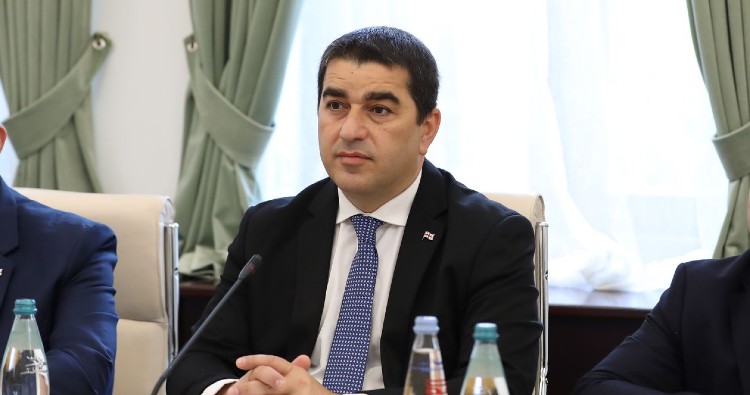Parliament Speaker claims “romanticisation” of “Molotov-throwing” by domestic opposition “funded by money of American citizens”

In his remarks over the matter, Papuashvili said it was “not clear why the money of American citizens was flowing to promote the idea of Molotov cocktail in a foreign country”. Photo: Parliament of Georgia
Georgian Parliament Speaker Shalva Papuashvili on Friday claimed the money of American taxpayers had been used to “fund romanticisation of Molotov-throwing” during public protest in Tbilisi in March 2023 against a proposed bill on the transparency of foreign influence, in comments following the ruling Georgian Dream party’s reintroduction of the controversial draft law this week.
The party decided to resubmit the bill calling for the registration of non-commercial legal entities and media outlets in the country as “pursuing the interests of a foreign power” if they derive more than 20 percent of their funding from abroad.
In his remarks over the matter, Papuashvili said it was “not clear why the money of American citizens was flowing to promote the idea of Molotov cocktail in a foreign country”.
“The ‘I threw it’ campaign has been funded from the United States budget approved by the Congress. Therefore, I think the questions [about the bill] should not be posed to us, but they should be posed to the National Endowment for Democracy”, he said in reference to the US-based non-governmental organisation.
Maybe they [should] take an interest in why and how American endowments fund parties, radical and extremist groups in Georgia? Is this in the best interest of the American citizens? First of all, it is against the interests of the American citizens when an organisation in a strategic partner country that stood side by side with [American] soldiers in Afghanistan spends money from your budget to romanticise the Molotov cocktail idea”, he noted.
Papuashvili on Wednesday said the principle of the bill initiated by the parliamentary majority was “simple” and consisted of the idea that “the public deserves to know who wields influence over their lives”.
The reintroduction of the bill was criticised by officials from the European Commission, NATO, Council of Europe and US Department of State.
 Tweet
Tweet  Share
Share